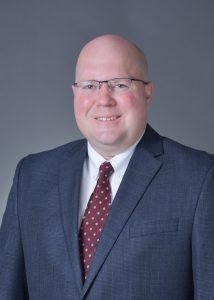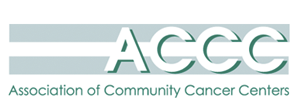Through the collaborative efforts with the UK Markey Cancer Center Affiliate Network, Central Kentucky Cancer Center is able to offer our patients the newest treatment options and emerging technologies conveniently located in two locations: Georgetown, Kentucky (Scott County) and Winchester, Kentucky (Clark County).
With a high staff-to-patient ratio, our patients are afforded the proper attention they deserve, while the staff gets to know each one as an individual. We understand that battling cancer can have enough challenges. That is why we designed one-of-a-kind care plans that cater to each patient’s distinct needs, and developed a support program through our nurse navigators and patient care coordinators. Together they reassure and guide patients and families through all the uncertainties of cancer treatment. At Central Kentucky Cancer Care, our specialists and staff are committed to treating you with compassion and your cancer with the most advanced diagnostics, techniques and cancer treatment available.
We’re working to eliminate barriers to care in the communities we serve. BEING CLOSE TO HOME MATTERS, BECAUSE EVERY MOMENT MATTERS.
At Central Kentucky Cancer Care (CKCC), we recognize that your quality of life throughout the course of your cancer treatment requires multiple levels of support and energy. As part of the personal care and consideration our patients deserve, we offer a broad range of resources, support mechanisms and ancillary services to help manage the many components of treatment, so patients can focus their attention on getting well. Having these services offered in our local communities is an important factor to our patient care. It allows patients to stay close to home, near family and their support network. It saves commute time, lowers their stress and conserves a patient’s energy that is better spent resting and recovering.
Having a cancer treatment facility close to home allows patients to stay close to their family and support network. This lowers stress, saves commute time and conserves a patient’s energy that is better spent recovering. But more importantly, it offers improved care and peace of mind. Click here for contact and location information.
Our specialists and staff are committed to treating patients with compassion, and cancer with the most advanced diagnostics, techniques and treatment available. Our exceptional team of highly-skilled cancer treatment professionals include a medical oncologist, radiation oncologist, wound and ostomy care nurse, surgeons, physician specialists, nurse navigators, oncology social workers and financial counselors.

Oncologist / Hematologist
Dr. Kent Taylor graduated magna cum laude with a bachelor of science degree from the University of North Alabama, Florence, AL; majoring in professional biology with a minor in chemistry. He received his medical doctorate from the University of Alabama School of Medicine, Birmingham, AL. He completed his internal medicine residency and fellowship in hematology/oncology at the University of Kentucky, Lexington, KY. Dr. Taylor is focused on the diagnosis and treatment of cancer and blood disorders.

Radiologist / Oncologist
Dr. Laura Downes completed a bachelor of science at the University of Dallas in Irving, Texas graduating cum laude. She attended the University of Kentucky College of Medicine and completed an internship in Internal Medicine at the Christ Hospital in Cincinnati. Dr. Downes also underwent residency training at the University of Kentucky in the specialty of radiation oncology. She is currently board eligible. She is focused on the treatment and diagnosis of cancer through radiation therapies.

Medical Oncology

Medical Oncology
Cancer Center Director
Oncology Education/Community Outreach Coordinator
 The Association of Community Cancer Centers (ACCC) promotes the entire continuum of quality cancer care for our patients and our communities. Since 1974, ACCC has been helping oncology professionals adapt to the complex changes of delivering quality cancer care. ACCC members rely on the Association to bring them information on cancer program management, reimbursement issues, legislative and regulatory changes at the state and national levels, community cancer program standards, NCI-funded community clinical research, hospital alliances and physician relationships, and more.
The Association of Community Cancer Centers (ACCC) promotes the entire continuum of quality cancer care for our patients and our communities. Since 1974, ACCC has been helping oncology professionals adapt to the complex changes of delivering quality cancer care. ACCC members rely on the Association to bring them information on cancer program management, reimbursement issues, legislative and regulatory changes at the state and national levels, community cancer program standards, NCI-funded community clinical research, hospital alliances and physician relationships, and more.